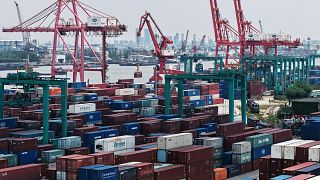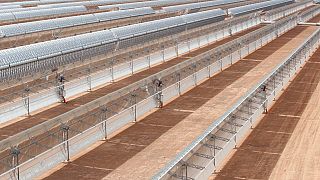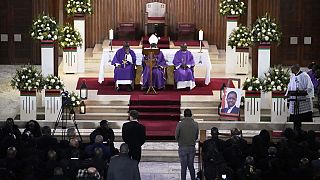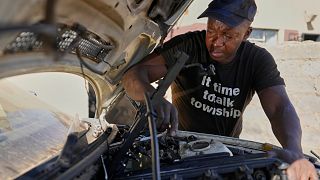South Africa
Widespread power cuts are blamed for pushing South Africa’s economy, the continent’s most industrialized, into recession, according to official statistics released Tuesday.
The South African economy shrank by 1.4% in the fourth quarter of 2019 from the previous three-month period, after contracting by 0.8% in the third quarter, according to Stats SA. A recession is commonly defined as two consecutive quarters of economic decline.
South Africa’s nationwide power blackouts are blamed for the larger than expected decline in the fourth quarter. The state-owned power utility, Eskom, has been unable to meet demand and has had to implement rotating cuts in electricity to residences, factories, mines and businesses.
Eskom’s “inability to meet demand on a sustained basis is a key reason for South Africa’s very slow growth record of just 0.9% a year in 2015 19,” said Pat Thaker, the Economist Intelligence Unit’s regional director for the Middle East and Africa. “Eskom is, in effect, capping South Africa’s growth potential and preventing a significant rebound.”
South Africa’s economy grew by just 0.2% in 2019 and 0.8% in 2018, according to the official statistics.
Seven out of 10 of the country’s sectors contracted in the fourth quarter, including agriculture, which dropped by 7.6%, manufacturing, which dropped 1.8%, and transport, which declined 7.2%.
South Africa’s economic growth forecast for 2020 has been cut to 0.9%.
President Cyril Ramaphosa, who came to power two years ago, has not succeeded in achieving robust economic growth as the country has been hobbled by the power shortages, erratic rains and widespread allegations of corruption.
AP













01:04
South Africa: ANC partner quits key govt initiative as new spat hits coalition
Go to video
African gut study reveals urbanization threatens microbial diversity
01:37
South Africa calls for peaceful resolution to Israel-Iran conflict
01:00
Pix of the Day: June 19, 2025
01:30
Abu Dhabi hosts first Global South Economic Forum
01:23
Hero's welcome for South African men's cricket team